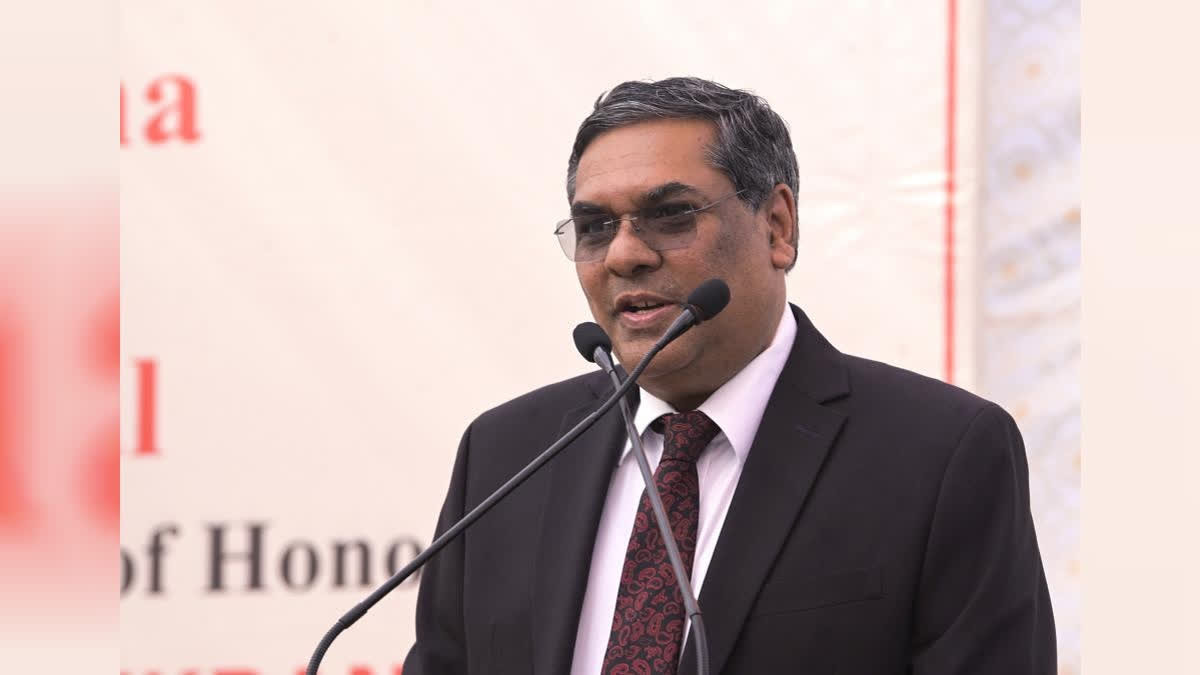New Delhi: Chief Justice of India Sanjiv Khanna on Tuesday batted for a compassionate and humane justice system, and stressed the need to counter the "black coat syndrome" arising due to a deep-seated fear and sense of alienation among the common man towards the criminal justice system.
The CJI was speaking on the occasion of the celebration of the Human Rights Day programme organised by the National Legal Services Authority (NALSA).
The CJI said human rights were inalienable and termed human rights as the bedrock of human society, imperative to ensure global peace.
"This brings us to the most important question. The question is, call for a compassionate and humane justice. How do we ensure this? How do we promote this in our legal system? Criminal courts are the areas which require a lot of emphasis. This requires a lot of reform. The laws require a change. We have decriminalised a number of laws, but a lot of work is still in progress," he said.
CJI Khanna in his address quoted President Droupadi Murmu and cited the need to counter the "blackcoat syndrome" arising due to a deep-seated fear and sense of alienation among the common man towards the criminal justice system.
He also flagged the issue of overcrowding in jails and said undertrial prisoners exceeded the total capacity of prisoners, and, sharing figures, he added that the national capacity of under trials was 4.36 lakh but at present, about 5.19 lakh prisoners were lodged in prisons.
"So, overcrowding particularly affects the undertrials, it severs ties with the society. Such disconnect pushes them into a spiral of criminalisation and making reintegration a challenging task," he said.
The CJI termed Section 479 of Bharatiya Nagarik Suraksha Sanhita dealing with the maximum period for which an undertrial prisoner can be detained as a "progressive" and a "significant" step.
"It acknowledges the crucial reality that prolonged trial detention affects the presumption of innocence while trapping individuals, especially those from marginalised backgrounds in deepening cycles of disadvantage and societal alienation," said the CJI, who is also NALSA's patron-in-chief.
The programme was attended by Minister of State for Law and Justice Arjun Ram Meghwal, executive chairman of NALSA Justice B R Gavai and Justice Surya Kant, chairman of the Supreme Court Legal Service Committee. Several other judges from the apex court, the Delhi High Court and trial courts attended the function.
Justice B R Gavai in his address said NALSA's focus was to empower citizens and to make justice accessible to them even in the country's remote locations. “This is crucial because on average, poor persons are arrested every year across the country, a large majority of these individuals are unaware of their rights, including their right to the presence of a lawyer at interrogation or to know the grounds of their arrest or to contact their family members," he said.
Justice Surya Kant expressed concern over the plight of elderly and terminally ill prisoners, saying the medical protection provided under the right to dignity often remained "theoretical, inaccessible, and invisible" for them. He said there is an urgent need for compassionate measures to address the unique challenges faced by these individuals.



